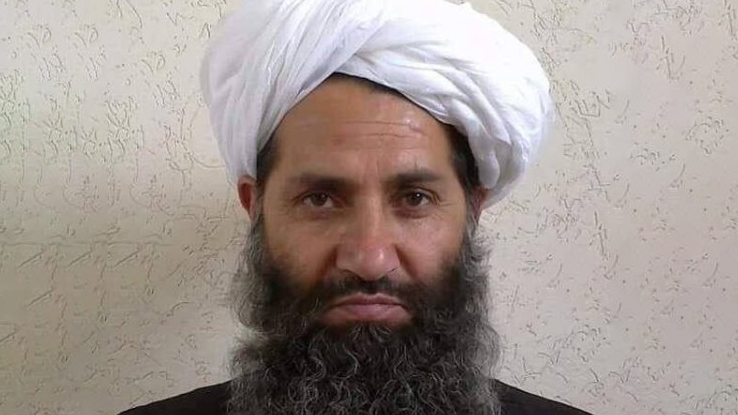Taliban supreme leader Hibatullah Akhundzada, in an audio recording attributed to him from his Eid prayers address in Kandahar province on Wednesday, defended the use of public punishments. He refuted past descriptions of his group as “terrorists,” asserting that had they been terrorists, they would have executed their adversaries upon seizing control of Afghanistan.
“If we were terrorists, we would have killed those who fought against us,” Akhundzada said in the tape. He emphasized the need for continued vigilance and sacrifice among Taliban members, reminiscent of their past tactics. “You should stay vigilant not to fail. You should continue fighting, sacrificing just as you did with suicide attacks in the past for success. Today, as you have gained success, you should not step back,” he stated.
Akhundzada criticized the international portrayal of the Taliban, suggesting a bias in media representation. “In the past, the enemy hit you with drones, with B52s, the mother of all bombs, and every kind of ammunition. That enemy is not negligent today. Today, they hit us in another way, by propaganda,” he added.
Defending Public Punishments
In his 35-minute speech, Akhundzada reiterated his support for public punishments, which he argued were divine commands rather than human decisions. “I am implementing the hudud of Allah, but they (the international community) say, ‘Why do you implement public punishment? Why do you stone? Why do you cut hands? This is against our law.’ You want to impose your law on us and want respect for your law,” he declared. “My religion is Islam; why don’t you respect Islam?”
“The courts that announce their verdicts are not doing so at their own will; they are obliged… Because it is the verdict of God. Neither judges nor the government are to blame. It is the verdict of Allah,” Akhundzada explained.
The Taliban has carried out public punishments on hundreds across various provinces.
We Are Not Terrorists
Akhundzada also addressed accusations of terrorism against the Taliban, particularly in their resistance against international forces. “You called us terrorists and militants… Those terrorists, based on your thoughts, when they came to power in Afghanistan, you saw that their deeds were as kind leaders instead of terrorists. These people fought a lot against us and martyred and wounded many. If we were terrorists and anti-human and if we did oppressions, we would have killed and executed them, and we were not blamed under any law,” he argued.
“We announced the general amnesty,” he noted.
According to the UN Assistance Mission in Afghanistan (UNAMA), at least 237 extrajudicial executions occurred between the Taliban takeover on August 15, 2021, and June 15, 2022. A subsequent UN report in December cited at least 69 extrajudicial killings, primarily of National Resistance Front (NRF) members, with 48 occurring between September 12 and 14 in Panjshir province.





